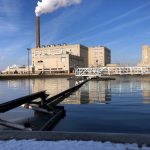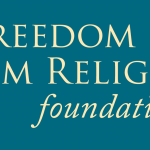Gov. Evers Announces $10 Million to Improve Access to Clean Drinking Water Across the State
Governor's investment and expanded eligibility could help more than 1,000 private well owners
OCONTO — Gov. Tony Evers, together with the Wisconsin Department of Natural Resources (DNR), announced today a new $10 million grant program to support the replacement, reconstruction, treatment, or abandonment of contaminated private wells. The program, based on the state’s Well Compensation Grant Program, will expand eligibility beyond the current Well Compensation Program to support more private well owners and increase access to clean drinking water. With this $10 million investment and expanded eligibility criteria, it is estimated the program could help well owners address contamination in approximately 1,036 additional wells.
The current Well Compensation Grant Program contains a number of statutory eligibility requirements that significantly limit the number of individuals that are able to utilize the program. Therefore, the new $10 million program announced today will make critical updates beyond the Well Compensation Grant Program to expand eligibility and help more Wisconsinites, including:
- Eliminating the requirement that a nitrate-contaminated well is only eligible for a grant if it is used as a water supply for livestock;
- Lowering the nitrate threshold for nitrate-contaminated wells from 40 parts per million (ppm) to 10 ppm to comply with the state’s public health standards;
- Lowering the arsenic standard for arsenic-contaminated wells from 50 parts per billion (ppb) to 10 ppb to comply with federal drinking water standards;
- Allowing any source of bacterial contamination that presents a human health risk to be eligible for the program, not just fecal bacteria caused by livestock;
- Increasing the family income limit for grants from $65,000 to $100,000, a threshold that has not been raised since 1995;
- Eliminating the requirement that an award must be reduced by 30 percent of the amount by which the claimant’s income exceeds $45,000 if the claimant has a family income that exceeds $45,000; and
- Expanding eligible applicants to include owners of contaminated non-community wells (churches, daycare centers, rural restaurants and other small businesses) and basing income eligibility on the property or business owner’s income instead of family income.
“Everyone in Wisconsin deserves clean drinking water,” said DNR Secretary Preston Cole. “This money will be available to private well owners who need help dealing with contaminated groundwater, and DNR is excited to offer this assistance.”
In his 2021-23 biennial budget proposal, Gov. Evers proposed providing $2 million in additional funding over the biennium for the Well Compensation Grant Program, as well as making several needed updates to the eligibility requirements, including lowering the nitrate and arsenic contamination standards to align with public health standards, increasing the family income limit for grants, and eliminating the award reduction for families making more than $45,000. Unfortunately, while the Wisconsin State Legislature provided $2 million over the biennium in one-time funding, they failed to include any of the recommended and needed updates to the eligibility requirements of the program, preventing individuals from accessing the funds available to clean up contaminated wells. The investment announced today will help fill this gap and provide support for those private well owners who would otherwise not be eligible for funding under the current Well Compensation Program’s criteria.
According to the Wisconsin Groundwater Coordinating Council, in 2021, nitrate was the most widespread groundwater contaminant, and about 10 percent of private well samples and more than 200 public water supply systems exceeded state and federal standards for nitrate. Nitrate exposure has been linked to birth defects, and infants who drink water with excess levels of nitrate are especially at risk for a condition called methemoglobenemia, or “blue baby syndrome,” which results in low levels of oxygen in the blood and, in serious cases, can be fatal. Additionally, about 17 percent of private water supply wells tested statewide were positive for coliform bacteria with three percent of these wells testing positive for E. coli, which is an indicator for pathogens that can cause serious, acute health effects. And while arsenic is naturally occurring, high levels of arsenic contamination of groundwater is common in Northeastern Wisconsin and moderately high levels of arsenic contamination are common in some parts of Southeastern Wisconsin. Exposure to arsenic over time can cause skin damage, problems with the nervous system, and increased risk of cancer, among other symptoms.
There are approximately 800,000 wells in Wisconsin that serve an estimated 40 percent of Wisconsin households. The application to apply for this program will be ready this fall. More information can be found on the DNR website here. Individuals interested in receiving notifications about the program may sign up here.
An online version of this release is available here.
NOTE: This press release was submitted to Urban Milwaukee and was not written by an Urban Milwaukee writer. While it is believed to be reliable, Urban Milwaukee does not guarantee its accuracy or completeness.
Mentioned in This Press Release
Recent Press Releases by Gov. Tony Evers
Gov. Evers, DNR Announce 2025 Urban Forestry Program Grant Recipients
Dec 13th, 2024 by Gov. Tony EversGrants will help increase urban forest canopy, improve quality of life and public health






















